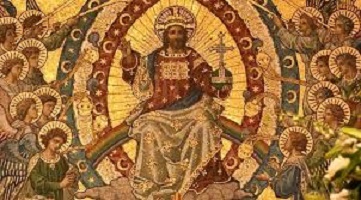I’m not a “tin foil” hat kind of guy (though I’m beginning to sympathize with Alex Jones more and more these days). I don’t believe that there are conscious, concerted, deliberate government conspiracies behind everything that goes on in our society. However, the Western church has been the victim of a well-orchestrated conspiracy from at least the sixteenth century. The philosophical and cultural seeds that began to be sown almost five hundred years ago are bearing fruit in abundance today. This conspiracy was, no doubt, orchestrated by unseen forces; not merely the kind that meet in smoke-filled backrooms, but the demonic kind that empower those principalities and powers that pull the levers in government structures. All of these powers worked together to tame the church. A church that believes that the kingdom of Christ extends over every area of human existence–individuals as well as institutions–must be subdued.
Many have tried to subdue it through persecution. We have experienced this from our earliest days as the church. The principalities and powers believed that they could stamp out our passions by exterminating the church. Some still try to do this in Muslim and communist-dominated countries. What they find is that the more that they persecute us, the more we grow. Putting Christians to death is like planting seeds: we die and then spring up thirty, sixty, and one hundred-fold.
The Western conspiracy was more sinister and, quite frankly, much more effective. Good, decent, God-fearing men (for the most part) used the occasion of the conflicts that arose from the dividing of the church in the Reformation to put the church in her place. That place was in subordination to the governments of respective countries. Before the sixteenth century, the church and government were seen as two parts of the same body, working together to extend the kingdom of Christ in the world. There was a great deal of corruption that needed to be remedied, but the principles that undergirded that structure were Scripturally sound. However, because the corruption wasn’t dealt with the way it ought to have been, the unintended consequence of the state stepping in and bringing its “peace” became the taming of the church.
How did they do it? First, they created “religion.” That is, the thinkers of the time decided to push the church out of the common life of society. “Religion” became a private set of beliefs that couldn’t be proven by independent human reason. Religion was interior; a matter of mere opinion and even superstition. Since everyone held different opinions and, thus, couldn’t be unified in the commonwealth, there must be a “freedom of religion,” by which they meant that men were free to hold their own opinions, but they weren’t allowed to press those claims on the rest of society.
This may have begun meaning “freedom to be a part of a Catholic or Protestant church within a Christian state,” but it certainly didn’t stay there. Once “religion” was relegated to private opinion and the state was exalted as supreme arbiter and peacemaker, “freedom of religion” became a pluralism that had no resemblance to the kingdom that Christ came to establish. The culture becomes unmoored from the church and must find its foundations for righteousness and peace in another source.
The church, meanwhile, happy to be left alone for the most part, accepted our subjugation. We are quite content to be good Western (American) Christians, holding our religion as a private opinion but not pressing it upon the culture around us. To say that we should, for example, live in an explicitly Christian society and not merely with a generic “deity” in our founding documents and on our currency, would be un-American.
The Western-American gospel subverts the gospel of the kingdom of Christ. The good news of the gospel of the kingdom is that Christ has all authority in heaven and on earth (Mt 28.18) and that he is has come to re-order the world in true righteousness bringing peace. This is our blessed hope. This is the gospel that we, the church, must embody and declare in word and in deed to the world around us.
As we look at how the church has been tamed, it would be easy to become discouraged. But we must remember that there is a great Conspirator; one who works all things according to the counsels of his own will. The conspiracies of the principalities and powers are all a part of his great conspiracy. God’s conspiracy is that he would have his faithful Son rule the world and that his will would be done on earth as it is in heaven. That plan will not fail.
















